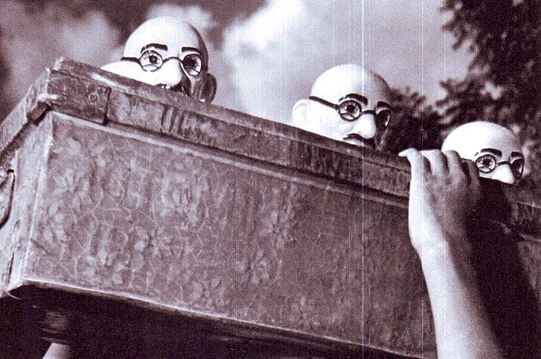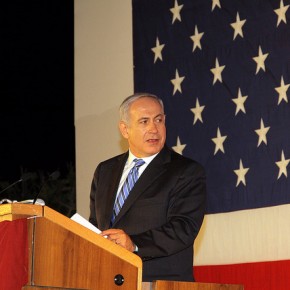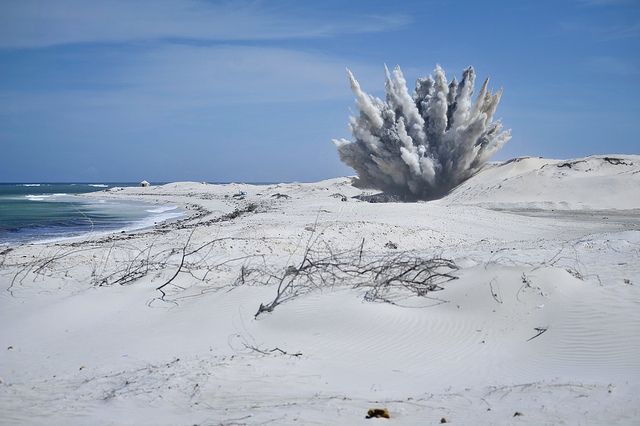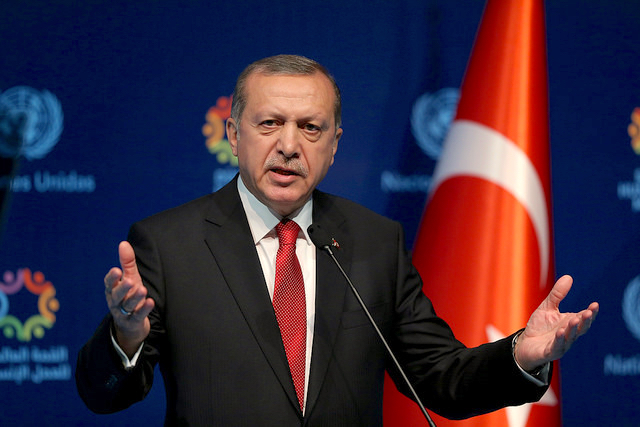Intizar Husain is repetitive. A small set of themes and phrases are the motus animi continuus of his oeuvre. Repeated locutions are marked by their colloquiality: khave se khava chilta tha (“shoulder rubbed against shoulder,”) which he uses to signify bygone spaces, ye ja vo ja (“now here and gone,”) marking sudden departures of idiosyncratic individuals in the past.
Extraordinarily private and reticent, Husain repeatedly only ever refers to himself, if at all, as part of some species. Hum kale log (“we black people,”) indicating an anachronistic sense of racial marginalization in the modern, which South Asians would appear to have otherwise all but entirely repressed. Hum jo na maulvi hain na mister (“we who are neither maulvis nor misters,”) gesturing towards a traditional identity that eludes the dominant discursive terrain, colonised as it is by fanatic modernists and blind reactionaries.
Even as the conclusion becomes clearer by the day, it is not said, axiomatically, that progress is the most catastrophic idea in the history of humanity. More than just an ‘idea’ of course, today, it encompasses our entire range of governing knowledge, institutions, moralities, practices, and technologies. It’s a fatal totality. As our world hurtles from every form of disaster to the next, as if towards some final catastrophe, the fate of this world, the world of Progress, is certain, even if no Nostradamus, no ancient calendar, can guide us in deciphering its exact temporality.
And the future fate, the destiny of a thing, is not a contingent aspect of its being, its life. It constitutes the nature, the reality of that thing in its very here and now, its presence. It will have made it what it is, just as much as the past that also makes it what it is. Nor is that catastrophic future given only in the emerging vectors of the present. There are events in the past when the catastrophe that is to come has already come to pass. Indeed, when that coming catastrophe has never ceased coming to pass. One such event is the ‘Partition’ of South Asia – that is, the moment of our ‘freedom’, our entry into modern political subjectivity, our entry into modern, historical life, pure and simple.
Intizar Husain, perhaps alone among South Asian writers, has held together in his thinking and writing, in his singularly anamnestic, mournful narratives and anti-narratives, the thought of Progress and the thought of Partition. Like the Jews who, as Walter Benjamin pointedly remarks in his anti-historicist Theses on the Philosophy of History, were “prohibited from investigating the future,” even as the “Torah and the prayers instructed them in remembrance,” Intizar Husain appears ascetically opposed to articulating an emancipatory politics for the future. Yet, there is in his works of memory a lost, a losing utopia of the past – a meta-utopia, if we remember that in Greek, meta points not just to a beyond, but to a past, both to an intensification and a retroversion.
In his last book, Conscripts of Modernity: The Tragedy of Colonial Enlightenment, Caribbean cartographer and theorist of anti-colonial utopian thought, David Scott, argued through his reading of C.L.R. James’ revision of his classic The Black Jacobins, (whereby the terrible fate of Toussaint L’Ouverture is reconfigured as epitomising the fatally lost hopes of the Haitian Revolution,) that today, a major reformulation of our philosophies of anticolonial nationalism is in order. In the postcolonial world, we must no longer narrate our stories of independence as romances, but rather recite them as tragedies.
There is an arresting premonition of this historical-philosophical insight in one of Intizar Husain’s most well-known stories,1952’s Ek bin-likhi razmiya, An Unwritten Epic. Here, the narrator keeps a diary of his attempt to write an epic on the subject of Pakistan’s freedom, alongside the narration of this very epic… or rather just its beginning. For the very character on whom the hero of this would-be epic is based – a village pehlwan somewhere in the United Provinces, who in the opening sequence of the intended epic, fights valiantly against Hindus in the communal riots leading up to independence, in the conviction that his village will surely be part of “Pakistan” – suffers a most unheroic fate in the ignoble business of Partition.

An even more demeaning turn of events greets him in his beloved utopia of Pakistan in its concrete historical realisation, the double disgrace draining him of all epic-heroic elan vital. The narrator himself then records in the final entries of his diary, the brief tale of the corruption of his own vitality. Frustrated as a writer by the impossibility of epic expression in the wake of Partition, he is allotted a mill through the nepotistic networks that spread through the foundations of Pakistan, abandoning his writing career even before it has begun.
(David Scott doesn’t mention this, but the historical trajectory of anticolonial nationalism had already been conceptualised as tragedy by Partha Chatterjee in Nationalist Thought in the Colonial World, where the tragic hero is not some village pehlwan, but another kind of athlete – generically called in studies of mysticism and asceticism, ‘spiritual athletes’: the failed Mahatma, who in Chatterjee’s depiction appears on the cusp of Partition as some mad apocalyptic, deprived of all efficacious, vital relation to his own historical moment.)
Written after his hopes for Pakistan had gone through several rounds of denudation, Intizar Husain’s 1979 novel Basti, has for its protagonist another hero, whose life is denuded and drained through Partition, the college history professor, Zakir – from zikr, “recollection” (cognate with the Hebrew, zakhor, a key term in the lexicon of that language as well, remembrance being a prime imperative in Judaism as in Islam, indicating no doubt, the retrograde character of the genuinely Semitic mind,) so “the one who recollects.”

The novel follows the folds of Zakir’s pre-Partition memories through the course of a tumultuous day in the life of a Pakistani city, presumably Lahore, where Intizar sahib settled after 1947, in an anarchic time when the social fabric is tearing apart, the last months before the “fall of Dhaka” (as it is recalled in Pakistani jargon.) Two of the most memorable scenes that surface in Zakir’s dream-memories of his pre-Partition North Indian basti, the idyllic village of “Rupnagar,” are episodes from the “natural history” of the arrival of electricity there.
As part of its entanglement with the enchanting and ominous world of nature that enveloped its life, Rupnagar is intermittently invaded by passing troops of monkeys that wreak havoc on the basti. One such invasion happens to coincide with the stringing of wires on the electricity poles that had themselves arrived so much earlier that they had all but disappeared into the basti’s dusty landscape. The wires now live in the centre of Rupnagar’s little bazaar. A monkey leaps and swings on them, only to fall dead to the ground. The basti people try to revive the creature by throwing water on him, but he lies lost in his befuddled death. The scene is repeated twice before the monkeys “understand” and leave the town in a mood of dejected enervation. Here is the searing remark that ends the episode: “Rupnagar, offering up its three monkeys as a sacrifice, had entered the age of electricity…”
What is the country from where Intizar Husain writes, from which he is away?After reporting on the pleroma of arts, trades, cuisines, colours, fragrances, tastes, idioms, games, hobbies, intercommunal holidays, rites, seasons in the life of Old Delhi – as it existed that is, before 1857, and then again during the few decades of its revival before the ascendance of New Delhi, in the wake of the Durbar of 1911 – there is this passage in Intizar Husain’s recent Dilli tha jiss ka nam, “The Delhi that was”:
“Seeing this entire topography, it appears that this civilization was pre- dominantly a civilization of the five senses. How much had been provided for the satiation of all the senses, and how they had entered the necessaries of life! Yes, but the satiety of the senses was not its limit. Acknowledging the five senses, it appears to then move ahead. Scent passes through sensual experience to find a path into spiritual experience and becomes the fragrance of faith. In shrines and in Shia mourning houses, colourful sashes. Incense burning in incense holders. Suffused with that, another fragrance, that of frankincense. Around standards, on biers, in shrines, strands of flowers. Now it feels as if this scent has escaped the circle of sensuality and brings report of a world beyond.”
Circa 1960, in a literary-critical essay attempting to characterize the singular modernity, the singularity of the historical experience of his generation of Pakistani, or Indo-Muslim literati (and he is primarily thinking of himself and his friend, the poet Nasir Kazmi, whose couplet ends the passage translated here):
“These people are not new in the sense that they have fulfilled the new demands of their society, or that they have infused their literature with new scientific inventions. If newness were dependent on this, then Mr.H.G.Wells would be the representative novelist of the twentieth century, and Thomas Mann, who wrote a series of novels on the basis of a few legends of the Old Testament, would have been considered an outdated [daqianusi] novelist. Similarly, among us, when various poets were trying very hard to become modern by writing poems about the railway engine and the airplane, poor Allama Iqbal was involved in nostalgia [nastaljia], and was writing ‘Masjid-e-Qurtaba’.”
The difference between the moderns of that period and this period is that for the former, the railway engine and the airplane were the touchstone of knowledge of the times, and for the latter it is the Sputnik and news of the threat of a Third World war in the newspaper. As far as Allama Iqbal is concerned, the writers of today cer-tainly have a relationship with him, but with this difference: For him the past was a clear and determined relation. This relation had come within his circle of apprehension, and he had faith in its truth. This is why he could say with conviction that: Main ke meri ghazal men hai atish- e-rafta ka suragh I, in whose lyric is a trace of the fire of the past.”
For the writers of today the past is no longer a clear and determined relation. Rather, it is a bundle of relations, whose tips come into their grasp only to slip away, and nor are they convinced of the truth of these relations. In such a situation, all they can do is dejectedly say: Mil hi jae ga raftagan ka suragh Aur kuch din phiro udas udas (“You are bound to find a trace of the departed / Keep up this melancholy wandering for a few more days.”)
(But Iqbal, it would appear, had already lost something, perhaps above all, a relation to the vast spatio-temporal expanse of night – limitless darkness in space, as well as the fathomless depth of time (with which another nostalgist, Thomas Mann, begins his tetralogy, Joseph and his Brothers) – that dominates the universe and envelopes human existence…)
After its ominous inauguration, the second signal episode in the natural history of Rupnagar’s electrification happens in the course of its gradual spread through the lifeworld of its inhabitants, the incremental devouring of the spaces of night by electrical light in the basti. Zakir’s grandmother, Bi Amma, recalled the time when a single torch in the basti’s ‘Small Bazaar’ provided the only respite from the insistent hugeness of the night, and when lanterns arrived to expand this shelter. She seems to regret, in her recount, the further encroachment of night by the light of electricity.
Now the turn has come for the basti’s mosque to yield to modernity’s enlightenment of the colony. Her son, Zakir’s father, Abba Jan, refuses to allow this to happen: ‘This is biddat [‘innovation,’ considered unlawful by the sharia],’ he declares. Three nights he stands guard at the mosque, as if protecting the sublime sanctity of the darkness of the prayers of maghrib, isha and fajr, when Bi Amma falls ill one evening and he retreats to his home, only to find her dead upon his arrival, and then discovers upon his return to the mosque at fajr that Addison’s bulb has already appeared there. He turns around and goes home to say the early morning prayers alone for the first time in his life.
The episode reminds me of an anecdote I read somewhere about the response of an early twentieth century alim – and they used to be immersed in literature then – to Iqbal’s boast to God: tu ne rat banai, to main ne diya banaya (‘if you made the night, I made the lamp.”) Unimpressed, the maulvi offered the astute literary-critical observation: “To compare the vast and mysterious phenomenon of night to a mere diya does not seem quite appropriate.”
An earlier version of this article appeared in India’s Seminar. Photographs courtesy of Doc Kazi. Published under a Creative Commons license.





